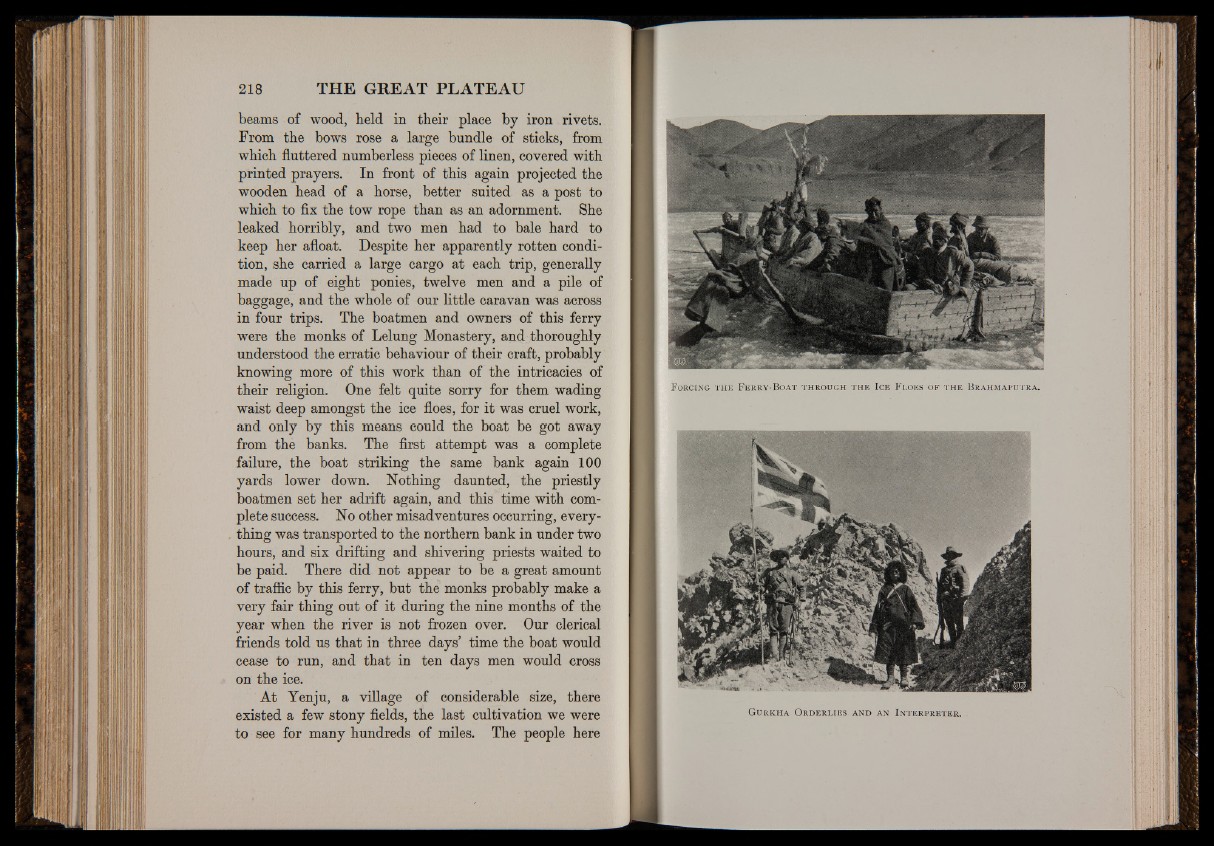
beams of wood, Held in their place by iron rivets.
From the bows rose a large bundle of sticks, from
which fluttered numberless pieces of linen, covered with
printed prayers. In front of this again projected the
wooden head of a horse, better suited as a post to
which to fix the tow rope than as an adornment. She
leaked horribly, and two men had to bale hard to
keep her afloat. Despite her apparently rotten condition,
she carried a large cargo at each trip, generally
made up of eight ponies, twelve men and a pile of
baggage, and the whole of our little caravan was across
in four trips. The boatmen and owners of this ferry
were the monks of Lelung Monastery, and thoroughly
understood the erratic behaviour of their craft, probably
knowing more of this work than of the intricacies of
their religion. One felt quite sorry for them wading
waist deep amongst the ice floes, for it was cruel work,
and only by this means could the boat be got away
from the banks. The first attempt was a complete
failure, the boat striking the same bank again 100
yards lower down. Nothing daunted, the priestly
boatmen set her adrift again, and this time with complete
success. No other misadventures occurring, every-
. thing was transported to the northern bank in under two
hours, and six drifting and shivering priests waited to
be paid. There did not appear to be a great amount
of traffic by this ferry, but the monks probably make a
very fair thing out of it during the nine months of the
year when the river is not frozen over. Our clerical
friends told us that in three days’ time the boat would
cease to run, and that in ten days men would cross
on the ice.
At Yenju, a village of considerable size, there
existed a few stony fields, the last cultivation we were
to see for many hundreds of miles. The people here
F o r c in g t h e F e r r y -B o a t t h r o u g h t h e I c e F i .o e s o f t h e B r a h m a p u t r a .
G u r k h a O r d e r l ie s a n d a n I n t e r p r e t e r .